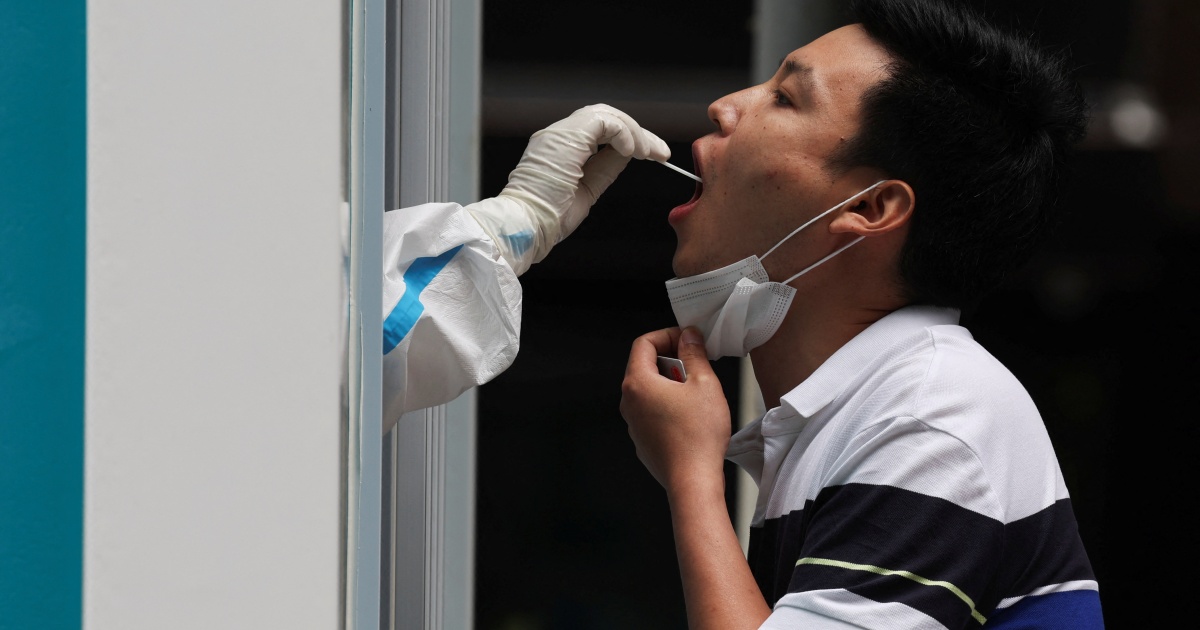Beijing imposes new COVID curbs over nightclub virus cluster
Chinese capital starts a new round of mass testing in its most populous downtown district after an outbreak linked to a bar.
Beijing started a new round of daily mass testing in one of its major districts after a rapidly spreading outbreak linked to a bar saw COVID rules tightened again in the Chinese capital.
The outbreak prompted authorities in the sprawling Chaoyang district on Monday to put schools back online, with the exception of students taking middle and high school placement exams.
Chaoyang district – home to high-end shops, multinational firms and embassies – started a three-day testing drive for all its 3.5 million residents and sealed off several downtown residential compounds and malls over the weekend.
“I’m pretty worried even though I don’t drink at bars regularly,” 22-year-old admin staffer Wang Yuqi told the AFP news agency.
“Even after restaurants reopened on June 6, I’ve been mostly staying at home and cooking my own meals outside of work.”
China is the last major economy still committed to a zero-COVID strategy, stamping out new cases with a combination of targeted lockdowns, mass testing and lengthy quarantines.
But that strategy is being stretched to the limit by the fast-spreading Omicron variant, as both Beijing and Shanghai have seen fresh clusters just days after lifting restrictions such as lockdowns, restaurant and office closures.
‘The difficulty of prevention and control’
A night of partying by one Beijing resident last week threw the city’s tentative reopening into chaos, leading authorities to shutter nightlife venues in the downtown district of Chaoyang days after they reopened last Monday.
The resident, who did not get tested for 14 days, went to several bars and nightlife venues in Chaoyang in the days before and after developing a fever.
The outbreak stemming from the Heaven Supermarket bar has infected at least 183 people in 15 districts so far.
The cluster “arrived with ferocious momentum and the difficulty of prevention and control is huge”, Beijing government spokesman Xu Hejian told reporters Sunday.
Beijing disease control officials said on Sunday that new cases linked to the bar cluster are still emerging.
All sporting events have been cancelled, and a plan for most children to return to school on Monday had already been scrapped.
Many bars that remain open are now imposing seating capacity limits.
“I’m quite worried that the city will return to what it was like in May,” said Alan Xiang, a 30-year-old livestreamer lining up for a COVID test.
Universal Resort in Beijing has also delayed its planned June 15 reopening.
Meanwhile, more than half of Shanghai’s 25 million residents underwent compulsory testing over the weekend, less than two weeks after it began stumbling out of a gruelling months-long lockdown marked by food shortages and scattered protests.
China reported 143 new infections nationwide on Monday, including 51 in Beijing.













